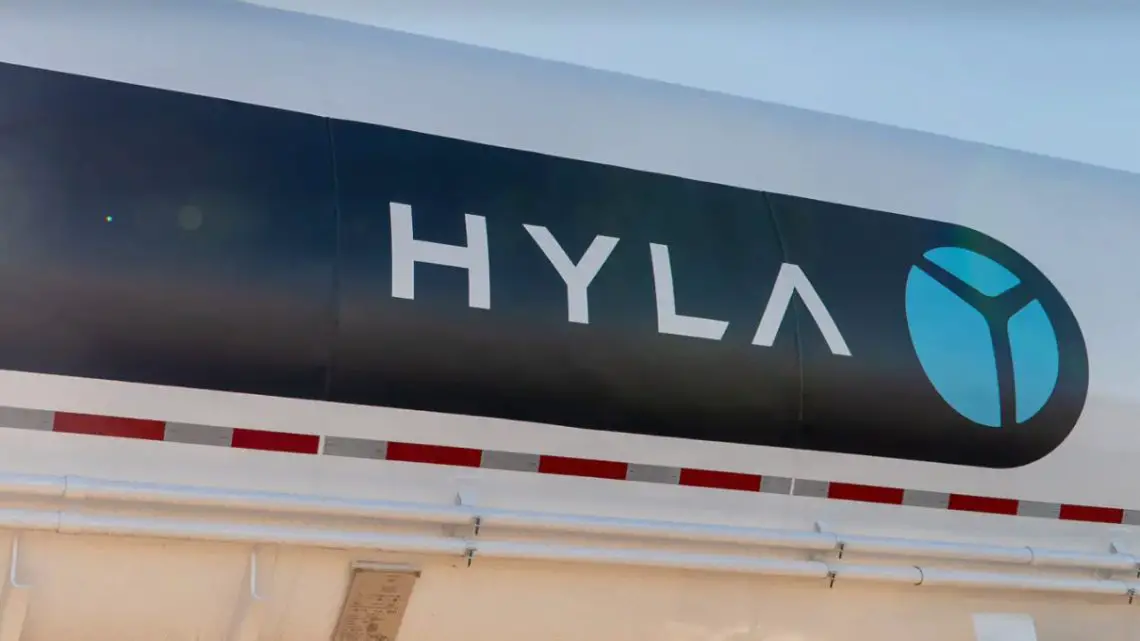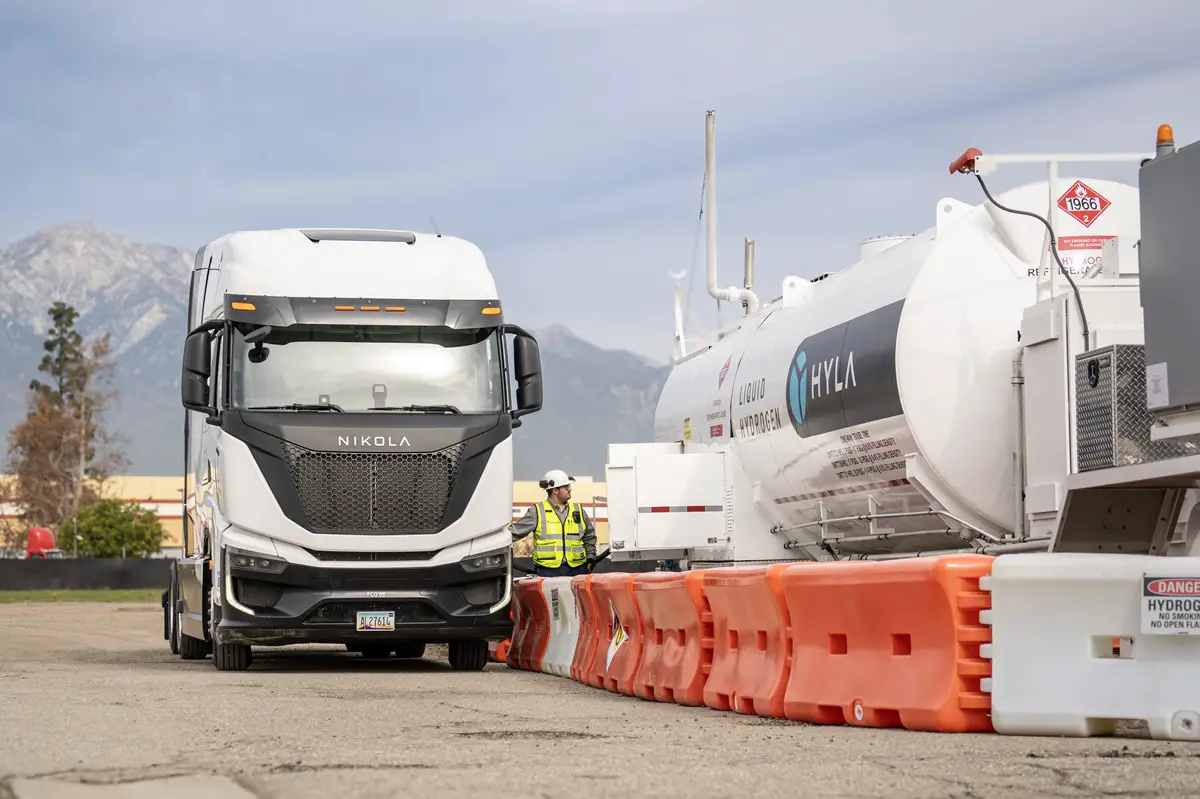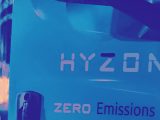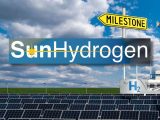
New Nikola HYLA Hydrogen Station Along California’s I-5
December 18, 2024Nikola Expands Hydrogen Infrastructure with New HYLA Station in West Sacramento
Nikola Corporation has taken another significant step in advancing hydrogen technology and zero-emission solutions with the opening of its new HYLA hydrogen refueling station in West Sacramento, California. Located at 917 Stillwater Rd, this station is poised to play a critical role in facilitating the use of Class 8 hydrogen fuel cell electric trucks (FCEVs) and furthering zero-emission transportation efforts in the region.
The station will feature modular fueling technology and is designed to support up to 20 hydrogen-powered Class 8 trucks daily in its first phase. This development is a part of a broader strategy to enhance hydrogen refueling infrastructure across California, supporting long-haul freight movement along one of the state’s busiest logistics routes.
A Strategic Location for Hydrogen Refueling
West Sacramento’s strategic location near the I-5 freight corridor and the Port of Oakland provides vital access for fleet operators in the northern California region. This initiative aligns with Nikola’s vision of establishing a seamless and accessible hydrogen refueling network for commercial trucking.
“Our first HYLA hydrogen refueling station in Northern California is an exciting milestone,” said Ole Hoefelmann, President of Energy at Nikola. “This location not only supports zero-emission fleet adoption but also strengthens the north-south logistics corridor for cleaner freight movement.”

HYLA Ontario Guasti Station -19 – Image Source: Nikola
The station also marks progress in developing a robust hydrogen supply chain, which Nikola emphasizes as crucial for scaling zero-emission transportation. California State Senator Christopher Cabaldon praised the initiative, highlighting that hydrogen refueling technology aligns perfectly with the logistical needs of long-haul trucking, including fast refueling times and extended operational range.
Advancements in Hydrogen Engine Technology
Hydrogen engine technology has rapidly evolved, unlocking its potential for commercial transportation. Recent innovations include:
- Efficiency improvements in hydrogen fuel cells have increased vehicle range and reduced energy loss during operation.
- Durability advancements have extended the lifespan of fuel cells, making them more practical for long-haul and heavy-duty applications.
- Faster refueling times, which make hydrogen FCEVs easier to integrate into the trucking industry.
- Lower production costs, thanks to advancements in electrolyzer technology and economies of scale.
Mobile refueling solutions are also being developed to meet the needs of fleets operating in areas without fixed hydrogen stations. These setups can include compact, modular units that are transportable and capable of refueling vehicles on-site, providing increased flexibility for companies.
Other Hydrogen News Headlines for Nikola
Nikola Motors is navigating challenging financial waters with a decisive step to stabilize its operations. The company recently announced plans to raise $100 million through a share sale. This move is seen as a crucial effort to bolster its financial reserves and maintain progress in its hydrogen fuel cell electric vehicle (FCEV) development pipeline.
The additional funds are expected to support ongoing projects, including advancing hydrogen fuel cell technologies, scaling production of Class 8 trucks, and expanding the HYLA hydrogen refueling network. While such measures underline the financial pressures faced by companies pursuing ambitious clean energy innovations, they also highlight Nikola’s commitment to sustaining its role in the zero-emission transportation sector.
Nikola’s latest financial move underscores the difficulties of leading innovation in the heavy-duty hydrogen vehicle sector. With competition intensifying and the market rapidly evolving, the company’s decision to pursue external investment reflects its strategy to address financial pressures while ensuring the continuity of critical projects.
The Impact of Hydrogen Infrastructure Now and in the Future
The innovative efforts by companies like Nikola demonstrate how hydrogen technology can be applied to solve real-world challenges in transportation today. For logistics and freight companies, the ability to quickly refuel vehicles and achieve extended operational ranges makes hydrogen solutions especially attractive for heavy-duty operations. Additionally, hydrogen refueling stations like the one in West Sacramento offer a tangible way to promote cleaner energy use while addressing the pressures of tightening emission regulations.
This infrastructure is also paving the way for a transportation future with significantly less environmental impact. Hydrogen-powered Class 8 trucks can carry out the demanding routes of cross-country freight while drastically reducing greenhouse gas emissions. Mobile refueling projects and flexible modular systems mean hydrogen doesn’t need to rely solely on permanent stations, allowing for creative deployment of resources in areas lacking existing infrastructure.
Looking ahead, the lessons learned from current projects can inform broader applications across different sectors, such as public transportation and emergency services. With ongoing advancements, hydrogen could eventually power more of the world’s energy needs beyond transportation, contributing to industrial energy solutions and grid support systems.
The West Sacramento station reflects the critical role infrastructure plays in the transition to a zero-emissions future. By investing in hydrogen refueling systems, the groundwork is being laid for a cleaner world, one station—and one truck—at a time.



 With over 15 years of reporting hydrogen news, we are your premier source for the latest updates and insights in hydrogen and renewable energy.
With over 15 years of reporting hydrogen news, we are your premier source for the latest updates and insights in hydrogen and renewable energy.